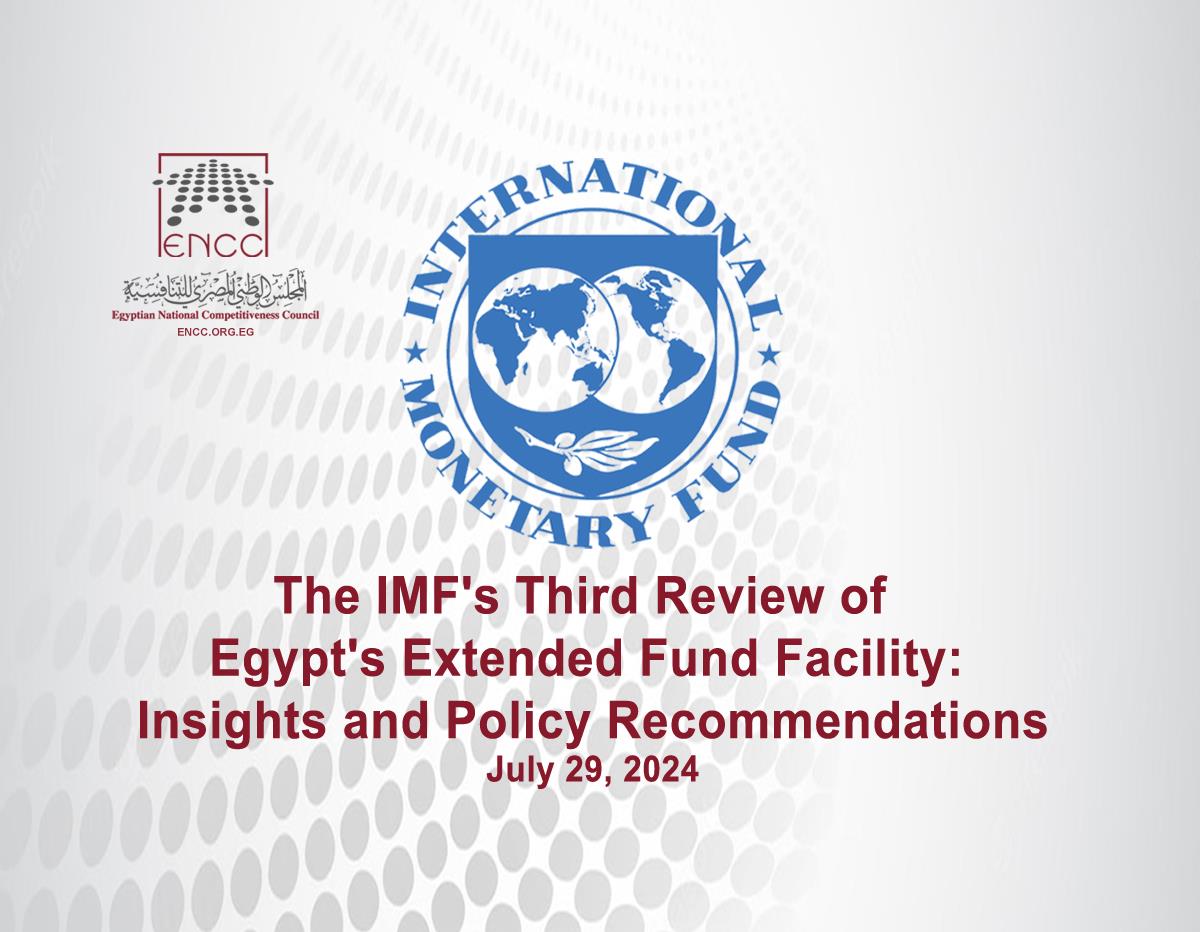The IMF's Third Review of Egypt's Extended Fund Facility: Insights and Policy Recommendations

The IMF's Third Review of Egypt's Extended Fund Facility: Insights and Policy Recommendations
Introduction
On July 29, 2024, the International Monetary Fund (IMF) completed the third review of Egypt's Extended Fund Facility (EFF), marking a critical juncture in the country's economic reform journey. The EFF, approved on December 16, 2022, is designed to support Egypt in addressing its macroeconomic challenges, restoring financial stability, and laying the groundwork for sustained economic growth. This comprehensive article delves into the details of the IMF's findings, recommendations, and the broader implications for Egypt's economic policies and future prospects.
Macroeconomic Context and Progress
Since the implementation of the EFF, Egypt has made notable strides in stabilizing its economy. Key macroeconomic indicators reflect an improving outlook:
- Inflation Control: While inflation remains high, it is gradually declining due to a more stable currency and tightened monetary policies. The IMF credits the adoption of a flexible exchange rate regime and a data-driven approach by the Central Bank of Egypt (CBE) for these improvements.
- Foreign Exchange Stability: The shortage of foreign exchange that plagued Egypt in previous years has been addressed, resulting in a more balanced and accessible currency market. This stability has bolstered investor confidence and private sector sentiment.
- Fiscal Targets: The government has successfully met several fiscal targets, including curbing unnecessary spending on large infrastructure projects and maintaining fiscal discipline. These efforts are crucial for reducing the budget deficit and managing public debt.
Despite these achievements, the IMF emphasizes that Egypt still faces significant challenges, particularly in the context of a volatile regional environment and persistent structural issues.
Key IMF Recommendations and Their Implications
1.Flexible Exchange Rate Regime
The IMF strongly advocates for maintaining a flexible exchange rate regime, a cornerstone of Egypt's economic program. This policy is essential for several reasons:
- Mitigating External Imbalances: A flexible exchange rate allows the currency to adjust in response to market forces, preventing the buildup of external imbalances. This is particularly important for a country like Egypt, which is vulnerable to fluctuations in global commodity prices and capital flows.
- Controlling Inflation: The exchange rate impacts import prices, which in turn affects overall inflation. By allowing the currency to depreciate or appreciate based on economic conditions, Egypt can manage inflationary pressures more effectively.
- Enhancing Competitiveness: A market-determined exchange rate improves the competitiveness of Egyptian exports by preventing the overvaluation of the currency, thereby supporting the trade balance.
2.Fiscal Consolidation and Revenue Mobilization
The IMF underscores the importance of continued fiscal consolidation to ensure economic stability and create fiscal space for essential public services:
- Revenue Mobilization: Strengthening tax collection and broadening the tax base are vital for increasing government revenue. The IMF suggests reviewing and reducing tax exemptions, enhancing tax compliance, and exploring new revenue sources such as wealth and property taxes.
- Expenditure Rationalization: Prioritizing government spending and improving the efficiency of public investments are crucial. The focus should be on essential services like health and education, while also ensuring that infrastructure projects are economically viable and beneficial to the public.
- Social Spending: The IMF stresses the need to protect and potentially increase social spending, particularly targeting vulnerable populations. This includes expanding programs that support healthcare, education, and social safety nets.
3. Structural Reforms
Structural reforms are pivotal for fostering a more dynamic and resilient economy. The IMF outlines several key areas for reform:
- State Ownership Policy (SOP): Accelerating the implementation of the SOP, which involves divesting state-owned enterprises and reducing the state's footprint in the economy, is critical. This reform aims to enhance the efficiency of these enterprises and create a more level playing field for private sector competition.
- Business Environment: Improving the business environment is essential for attracting domestic and foreign investment. This includes simplifying business regulations, reducing bureaucratic red tape, and promoting transparency and predictability in economic policies.
- Financial Sector Resilience: Strengthening the financial sector's resilience involves enhancing regulatory frameworks, improving governance in state-owned banks, and fostering competition. This will ensure that the financial sector can support sustainable economic growth and manage risks effectively.
- Energy Sector Reforms: The IMF also emphasizes the need for comprehensive reforms in the energy sector. Aligning energy prices with cost recovery levels, particularly retail fuel prices, is crucial for ensuring the sector's financial sustainability and attracting investment.
Risks and Challenges
While the IMF's review acknowledges the progress made, it also highlights several risks and challenges that could hinder Egypt's economic recovery and growth:
- Regional Instability: Ongoing conflicts in the region, particularly in Gaza and the Red Sea, pose significant external risks. These conflicts can disrupt trade routes, deter investment, and strain public finances.
- Domestic Policy Implementation: The success of Egypt's reform agenda hinges on the government's ability to implement policies effectively. This includes maintaining fiscal discipline, ensuring transparency, and addressing bureaucratic inefficiencies.
- Inflation and Exchange Rate Pressures: Managing inflation and maintaining a stable exchange rate are ongoing challenges. The IMF warns that failure to maintain a flexible exchange rate and prudent fiscal policies could lead to renewed economic instability.
Conclusion
The IMF's third review of Egypt's EFF arrangement presents a mixed picture of achievements and ongoing challenges. The country's commitment to a flexible exchange rate, fiscal consolidation, and structural reforms has yielded positive results, including improved investor confidence and economic stability.
However, significant risks and challenges remain, necessitating continued vigilance and decisive policy actions.For Egypt to achieve sustainable and inclusive economic growth, it must adhere to the IMF's recommendations and continue to implement comprehensive reforms. This includes enhancing tax revenue, improving debt management, increasing transparency in the financial sector, and fostering a business-friendly environment.
By addressing these areas, Egypt can build a more resilient economy, capable of weathering external shocks and providing prosperity for all its citizens.


